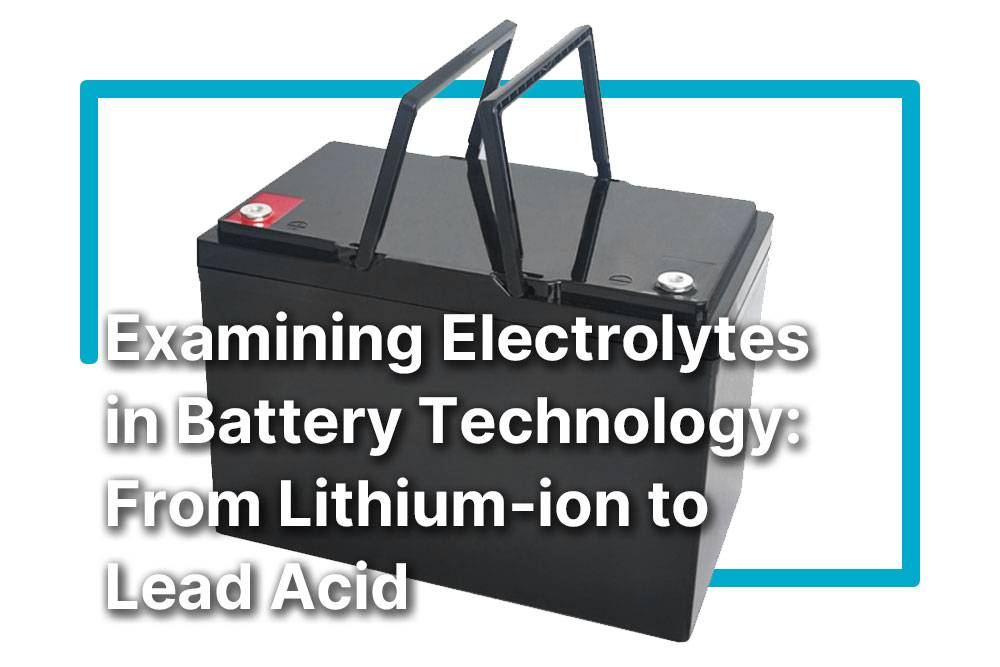Suggested by Arianne Bascaro – New

When it comes to batteries, the electrolyte used is super important for how well they work. In lithium-ion batteries, they use a special liquid with lithium salts dissolved in it to help ions move around. For lead-acid batteries, they use sulfuric acid to transfer electrons between the battery’s parts. Each type of battery needs its own kind of electrolyte to work best.
Understanding batteries is like solving a puzzle. Let’s break it down:
1. Importance of Electrolytes: Think of electrolytes as the puzzle pieces that make batteries work. They’re crucial for how well the battery functions.
2. Different Types for Different Batteries: Just like different puzzles need different pieces, different types of batteries need different electrolytes. For example, lithium-ion batteries use one kind, while lead-acid batteries use another.
3. Matching the Right Pieces: To make sure the battery works perfectly, it needs the right electrolyte. Using the wrong one can mess up the whole puzzle!
With the right electrolyte, batteries can power our devices efficiently and reliably.
How does lithium methanesulfonate function as a battery electrolyte?
Lithium methanesulfonate boosts battery performance by facilitating faster ion movement, improving efficiency. Its enhanced stability and compatibility with different materials prolong battery lifespan, while its wide temperature range ensures consistent performance. This lesser-known electrolyte is key to advancing battery technology for better efficiency and sustainability.
Lithium methanesulfonate, a lesser-known player in the realm of battery electrolytes, packs a punch when it comes to enhancing performance. Its role is crucial in facilitating the movement of lithium ions between the cathode and anode within lithium-ion batteries. This unique compound helps improve battery efficiency by enabling faster ion transport.
Unlike traditional electrolytes, lithium methanesulfonate boasts enhanced stability and compatibility with various electrode materials. This characteristic contributes to prolonging the lifespan of batteries while maintaining high energy density levels. By reducing side reactions that can lead to degradation, this electrolyte promotes long-term reliability in battery operation.
Furthermore, its ability to operate over a wide temperature range makes it ideal for diverse applications where consistent performance is essential. Lithium methanesulfonate serves as a valuable ingredient in pushing the boundaries of battery technology towards greater efficiency and sustainability.
The Future of Electrolytes in Battery Technology. As battery technology continues to advance, the role of electrolytes becomes even more crucial. Researchers and scientists are constantly exploring new materials and formulations to enhance the performance, safety, and sustainability of batteries.
Why does electrolyte conductivity impact the power density of lithium-ion batteries?
Electrolyte conductivity is super important for lithium-ion batteries’ power. It helps ions move between battery parts faster, so they charge and discharge quicker. This means more power for things like electric cars and gadgets. Better conductivity equals better battery performance and longer life. So, making electrolytes conduct better boosts battery power for our tech needs!
Electrolyte conductivity plays a crucial role in determining the power density of lithium-ion batteries. The electrolyte acts as a medium for ion transport between the electrodes, affecting how efficiently energy is stored and released. Higher electrolyte conductivity allows ions to move more freely within the battery, improving its overall performance.
In lithium-ion batteries, higher conductivity means faster charging and discharging rates, leading to increased power output. This results in improved energy efficiency and better overall battery performance. A well-conducting electrolyte ensures that the battery can deliver power when needed without significant losses due to resistance.
By optimizing electrolyte conductivity, manufacturers can enhance the power density of lithium-ion batteries, making them more suitable for high-demand applications like electric vehicles or portable electronics. Maximizing conductivity leads to improved battery efficiency and longevity for various technological advancements in our daily lives.


